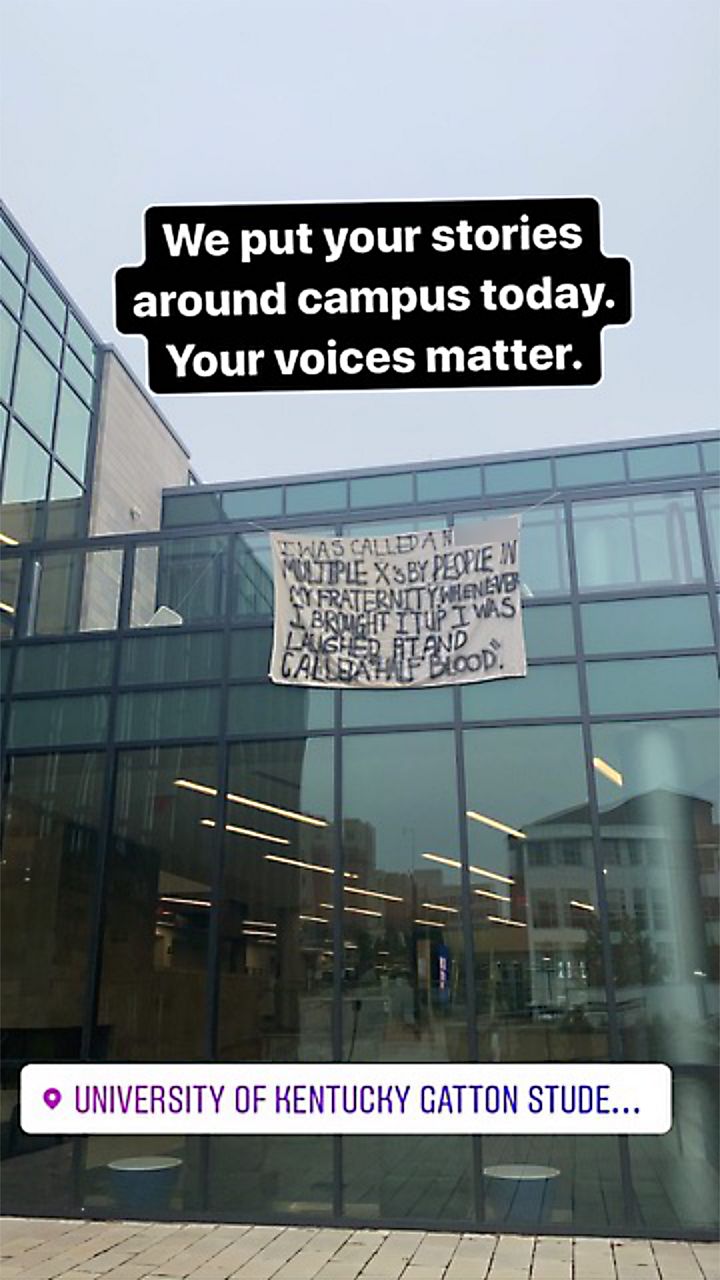WASHINGTON, D.C. — Khari Gardner says he was in Lafayette Park the June night it was forcefully cleared out by law enforcement to make way for President Donald Trump's bible photo op.
Though his classes are being held online, the experience motivated him to return to the University of Kentucky to start the Movement for Black Lives UK.
"I decided we got to make a change on campus. We got to make a change where we can," said Gardner.
The senior is calling on UK to rename the Kirwan-Blanding complex after Breonna Taylor, the 26-year-old EMT killed by police in her Louisville apartment in March. Taylor briefly attended the university. Other demands include increased funding for scholarships for people of color and women and diversity training for campus organizations.
But it's banner drops that have landed Gardner in trouble.

"I put them up 8:30 on a Saturday morning. I came back to campus around 10:30/11 and as soon as my car drove on campus, UKPD was behind me. They stopped me. Six officers. Four different cars," he said.
Gardner will face a student conduct meeting Wednesday, September 2 after putting up banners to amplify stories of racial injustice on August 15. UK says the meeting will examine if he violated the school's signage policy. Gardner believes he's being disproportionately targeted for his activism and that other student groups who put up banners are not similarly targeted.
One banner read, "I was called a n***** multiple times by people in my fraternity. Whenever I brought it up, I was laughed at and called a half blood."
"I’ve had students tell me they’ve been in classrooms and a teacher has let them be called racial slurs and say their work doesn’t matter. Someone changed their major because of that. Everyone had the chance to read and experience the stories of marginalization on campus," said Gardner.
"While we don’t talk about specific student incidents, to ensure their privacy more than anything else, we have been public that the issue involved really only speaks to the university signage policy, which basically says you need permission from the folks operating the building or structure in question before placing a sign," said Jay Blanton, spokesperson for UK.
On page eleven of UK's signage policy it states, "...installation of a banner on a building or facility must be approved by the Primary Administrator of the building/facility."
Several professors have voiced their support for Gardner.
"He’s being brought before the University to answer before charges of being disruptive. And yet what he’s doing by hanging these banners, Black Lives Matter, is not just bringing attention to these issues, these really pressing racial issues, he’s getting into that good trouble, that necessary trouble that John Lewis has urged us to do," said Nikki Brown, a UK history professor who is also part of the African American studies department.
"We are really very proud of him and proud of the work that he’s done to bring light to these issues," Brown added.
"We didn’t trespass. We didn’t destroy anything. We didn’t vandalize anything. We went into publicly accessible places with rope and zip ties and the University police department could have just used scissors to take down our banners," said Gardner.
Blanton suggests violating the signage policy is not considered a major infraction and that these types of conduct meetings are designed to seek restorative justice, not disciplinary sanction generally. The banners were removed the day they were hung up.
When asked if University president Eli Capilouto has met with the Movement for Black Lives UK, Blanton said, "President Capilouto has met in the last year with a number of Black student leaders to discuss their concerns and the desire we share to make even more progress as a community of belonging and acceptance for everyone. He has not met with the leadership of this specific group this semester, but many high-ranking and senior administrators across the institution have had ongoing meetings and dialogue with them."


